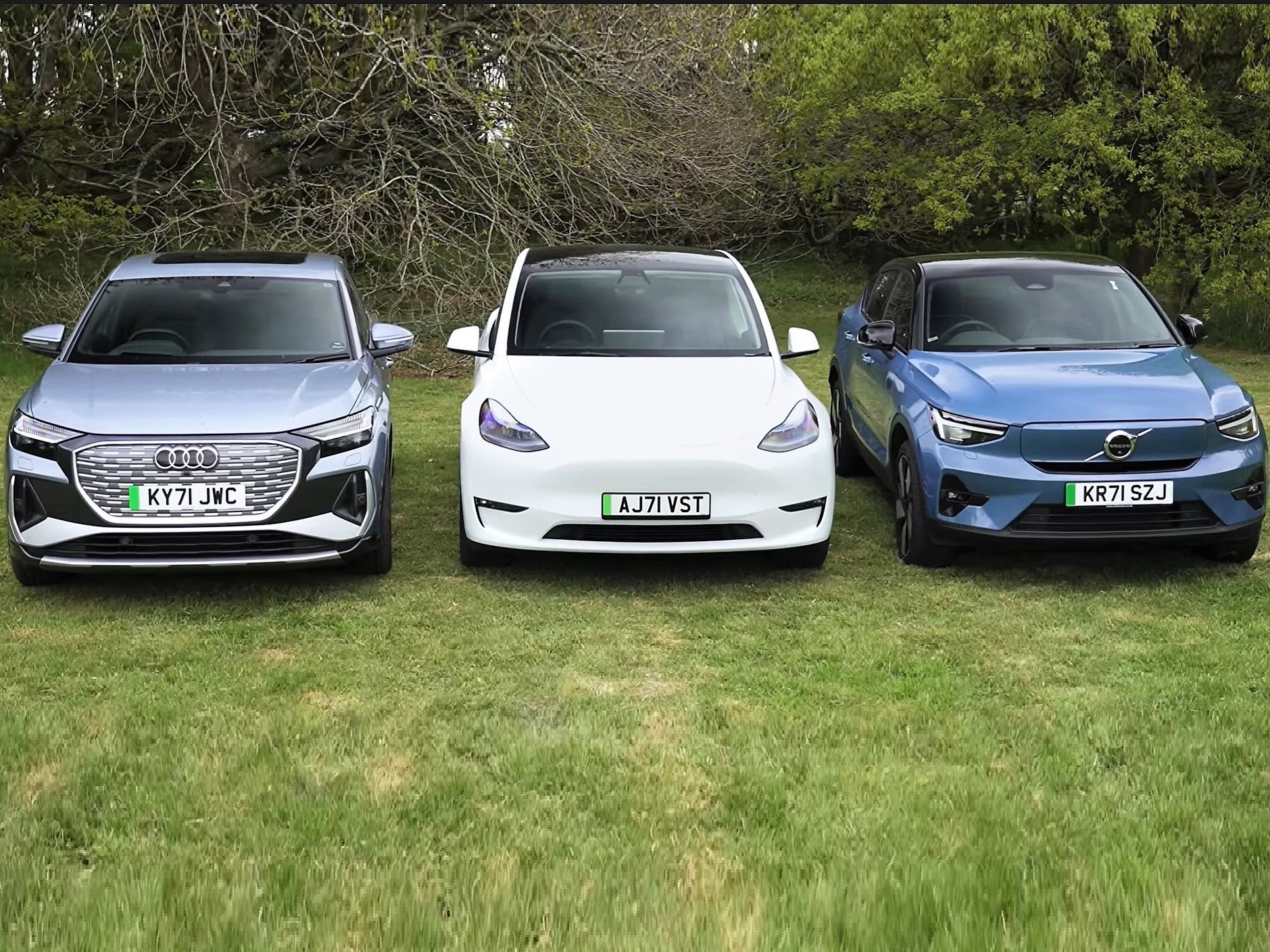Electric car range: How far can different models go on a single charge?
We’ve taken a look at how the range and charge time of different EVs compare

Your support helps us to tell the story
From reproductive rights to climate change to Big Tech, The Independent is on the ground when the story is developing. Whether it's investigating the financials of Elon Musk's pro-Trump PAC or producing our latest documentary, 'The A Word', which shines a light on the American women fighting for reproductive rights, we know how important it is to parse out the facts from the messaging.
At such a critical moment in US history, we need reporters on the ground. Your donation allows us to keep sending journalists to speak to both sides of the story.
The Independent is trusted by Americans across the entire political spectrum. And unlike many other quality news outlets, we choose not to lock Americans out of our reporting and analysis with paywalls. We believe quality journalism should be available to everyone, paid for by those who can afford it.
Your support makes all the difference.In June 2022, an electric Mercedes drove from Germany to the UK on a single charge, travelling more than 1,200km (750 miles) without needing to stop. The average petrol- or diesel-powered car would have had to refill its tank three times on the same journey, though there was a catch.
The electric vehicle was a Mercedes-Benz Vision EQXX, a concept car that uses a combination of advanced aerodynamics, lightweight materials and state-of-the-art battery technology that is not currently available on production EVs.
The demonstration showed what might be possible in the near future, but for now range anxiety remains a serious consideration for anyone considering buying or switching to an electric car. The environmental benefits may be obvious, and even performance has caught up, and in some cases exceeded, the gas-guzzling counterparts, but an under-developed charging infrastructure and relatively slow charge times remain a concern for any prospective buyers.
With that in mind, we’ve taken a look at how the range and charge time of different EVs compare.
How does the range of Tesla, Kia, Audi, VW and other EVs compare?
When buying a fossil fuel-powered car, few people ask themselves how much range it has. This is partly because it has become standardised, but also because it never takes more than a few minutes to fill up.
Not only does it take a lot longer to fully charge an EV compared to its polluting rivals, the charging stations are far less ubiquitous.
The official numbers stated by automakers do not always tell the full story, though various comparison sites and channels have performed real-world tests in recent years. Here’s how the best-selling models in the UK compare:
Tesla Model 3: 272 miles (438km)*
Kia e-Niro: 230 miles (370km)
Volkswagon ID.3: 259 miles (416km)
Nissan Leaf: 234 miles (378km)
Audi E-tron: 252 miles (405km)
Hyundai Kona Electric: 258 miles (415km)
Mini Electric: 145 miles (233km)
Renault Zoe: 238 miles (383km)
Vauxhall Corsa-e: 222 miles (367km)
*All figures are the base models, with some upper range models offering up to 100 miles of extra range.
How long does it take to recharge an EV battery?
The time it takes to charge an electric vehicle can vary wildly depending on whether it is done at home or with fast charge technology at a designated station.
For example, a Tesla plugged into a wall socket at home will take between 10 and 11 hours to charge, but at a Supercharger station it is possible to fully charge the car in about an hour and a half. Charging is logorithmic, so while 20 minutes could get you from 0-50 per cent, getting from 90-100 per cent could also take 20 minutes.
It is also worth noting that charging speed will be impacted by the weather, with EVs taking longer to charge at lower temperatures.
How much range could EVs have in the future?
As the Mercedes-Benz Vision demonstrated, the potential for EVs is emormous, especially with the introduction of new battery innovations like silicon anodes.
Within the next decade the average ranges could easily double, and unlike fuel-powered cars they are not limited by the size of the tank, but rather the density of the battery.

Join our commenting forum
Join thought-provoking conversations, follow other Independent readers and see their replies
Comments